Anxiety and the Menopause: Feeling Overwhelmed

The menopause can cause a huge number of symptoms and bodily changes, both physical and emotional. Whilst physical symptoms like the night sweats and irregular periods are the more visible and talked about, the emotional symptoms such as anxiety deserve just as much recognition.
Why do we get anxious during the Menopause?
It may be that women in menopause have suffered from anxiety long before they reach this season of change, and it may be that the menopause has significantly exacerbated this sense of anxiousness.
The hormones in our body are responsible for just about every inner function, so when we enter into perimenopause and our hormones fluctuate and fall, oestrogen levels start to lower, our brain experiences a reduced flow of blood being delivered to it, which means constricted blood vessels and weakened activities in the brain. This can become a pressure in our mental state and anxiety may set in.
Also, progesterone is our body’s ‘calming’ hormone which acts as a natural sedative that prepares the body for sleep, so when the level progesterone is reducing in the body during menopause, it gives rise to body restlessness and disturbed sleep patterns, which can also build anxiety.
What does anxiety feel like?
Anxiety can trigger different feelings in everyone, but some people talk about feeling very lonely, frightened or just totally overwhelmed. The anxiety itself may leave you easily panicked, especially if you weren’t familiar with this feeling of anxiousness prior to menopause.
With a big shift in hormone levels, it does make complete sense that it would have a counter-effect on our emotional life. Stress is a common symptom among menopausal women, which can cause a huge number of sensations and side effects. These include memory loss, headaches, confused thought patterns, short temperament, patterns, clumsiness, slower reflexes, lack of ability to judge your decisions, and a sense of feeling ‘out of body.’
In more serious cases, we can experience heart palpitations, digestive issues and chronic panic attacks.
What can help with my anxiety during the Menopause?
The key to overcoming anxiety is not to fight it. If you wish to relieve yourself from anxiety, try to work with it by being aware of how you react to anxiety, how you respond to anxiety and how you relax from anxiety.
If you're feeling very overwhelmed or if your anxiety is very severe it's a good idea to open up to communicate the experience of anxiety with a trusted person, personal or professional, can feel very therapeutic.
Popular natural remedies for anxiety
- Talk openly and/or journal about your anxiety to get to the root of it
- Cut back on caffeine as this is known to heighten anxiety
- Enjoy calming teas like raspberry leaf, chamomile, fennel
- Be mindful of your alcohol intake as a crutch for anxiety
- Exercise in a way you really enjoy to burn off nervous energy
- Integrate a yoga practice into your everyday life
- Take time for your own personal care
- Use meditation to calm the ‘mental chatter’
- Resolve any emotional issues to release stored stress
- Practice mindfulness, particularly self-forgiveness and compassion
- Try homeopathic remedies
- Try aromatherapy
Disclaimer:
Become™️ has a wonderful team of experts who all helped in the writing of this content. The opinions expressed within this page are the opinions of many people we asked, and from information we researched online. Become™️ is not responsible for the accuracy, completeness, suitability, or validity of any information on this page. All information is provided on an as-is basis.



